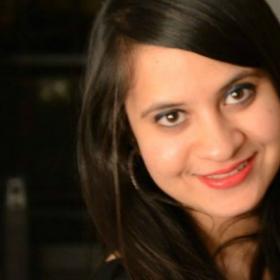
Can Islam Today Be Reformed?
Maajid Nawaz, a former Islamist who is now a British activist, author, politician and founder of Quilliam—a think tank that seeks to challenge the narratives of Islamist extremists—addressed a packed room on the critical question of whether Islam can be reformed, at the EastWest Institute’s New York Center on December 16. EWI CEO and President Cameron Munter introduced Nawaz. A lively question-and-answer session followed.
Nawaz began by establishing the critical need for this conversation. He described Islamist extremism in the context of what he refers to as the “Voldemort Effect.” Nawaz’s choice of analogy follows from all the time he spent reading the Harry Potter series in prison in Egypt, he joked. Much like “He-who-must-not-be-named,” Nawaz explained to an enthralled audience, people today are so afraid of Islamist extremism, that they are afraid to name it and tend to deny its very existence. He argued that this denial leads to an increase in hysteria and a neglect of Muslim minority communities that can be dealt with through reasonable and open conversation.
“Islamism is not Islam,” Nawaz iterated. He referred to Islam as a religion—internally diverse as any other faith—and Islamism as an ideology that desires to impose a single version of Islam on an entire society.
Nawaz called attention to an increasingly pressing issue that has been decades in the making—the rise of a global jihadist insurgency. With large numbers of Muslims from Britain and other parts of Europe being recruited into radical Islamist groups, there is an urgent need for long-term solutions, the termination of Islamist ideology and the need to reform certain aspects of the religion Islam.
Today, even though the intellectual content exists and social media acts as a rapid disseminator of information, Nawaz recognized that there is still a great need for grassroots social movements to popularize the message of reform.
“You don’t have to be African American to care about racism, or gay to care about homophobia, or female to care about sexism. And you don’t have to be a Muslim to care about this conversation,” he told the audience.
Nawaz believes that while the task at hand is a daunting one, it is not insurmountable. “People often ask, ‘where is this reform?’ The reform is happening. We’re in the thick of it as we speak,” he said.

